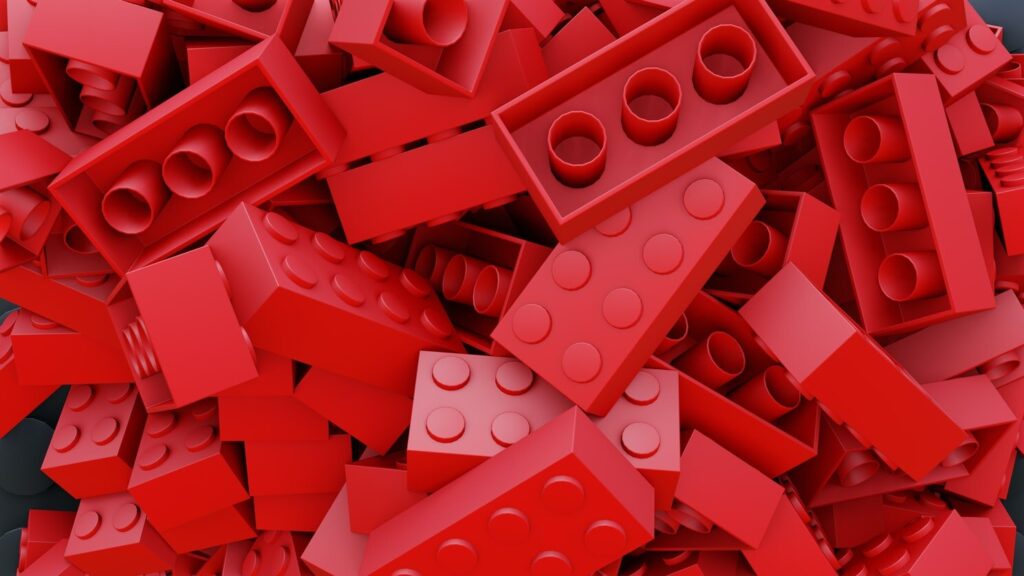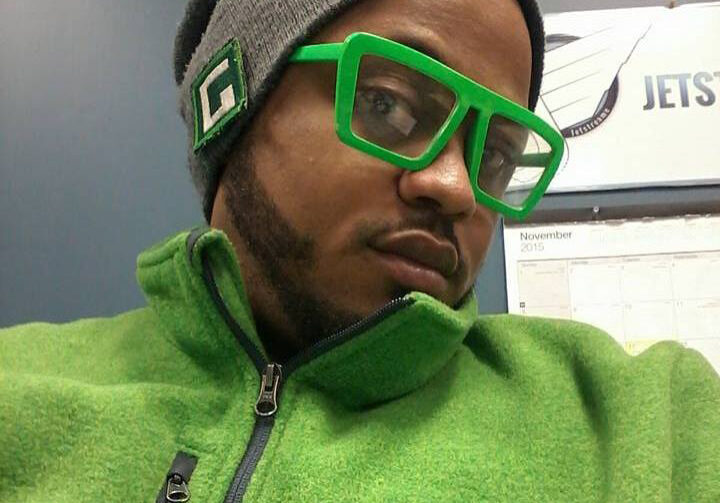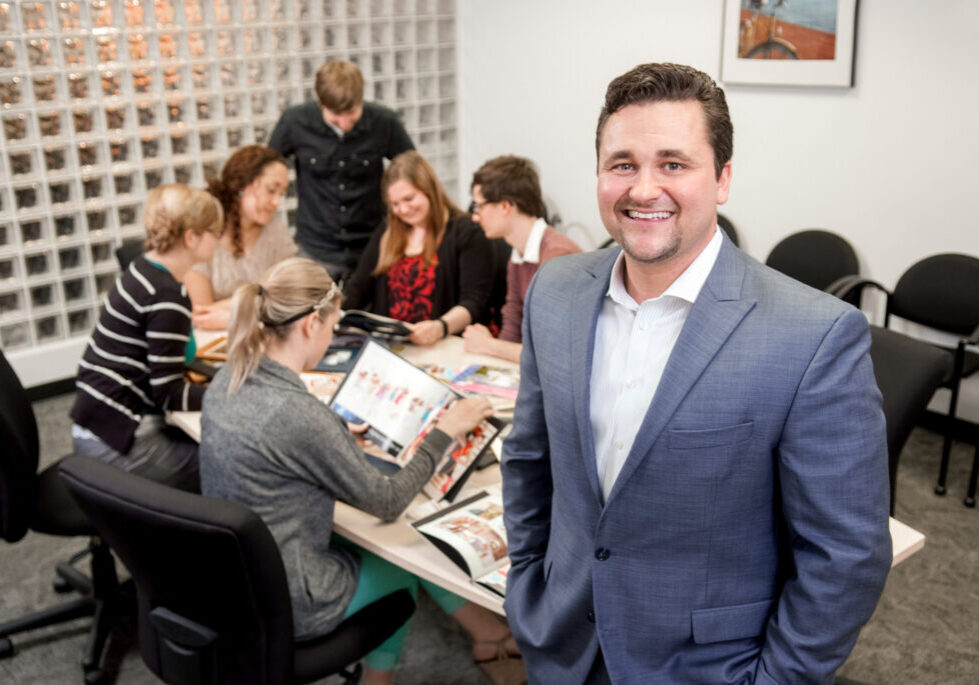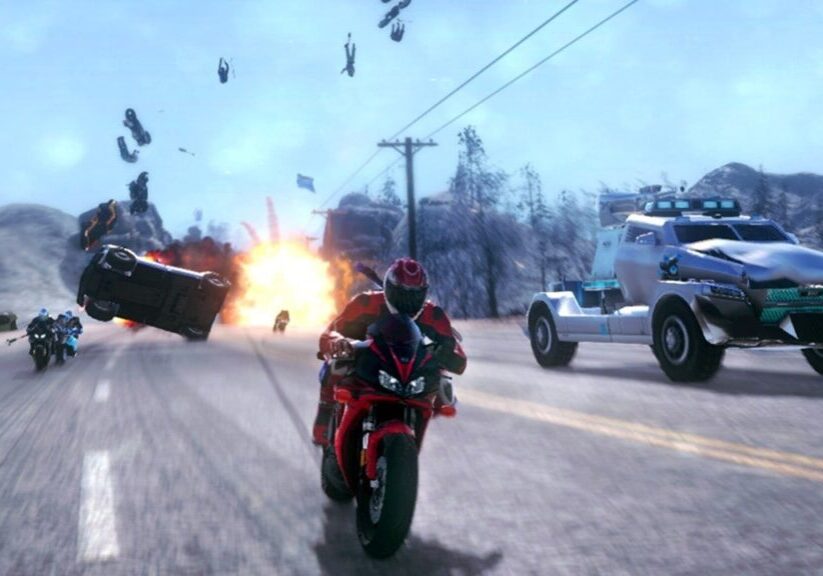As COVID-19 sweeps across the nation, doctors, nurses and other hospital employees are scrambling to treat patients while protecting their own safety and limiting viral spread. The demand for personal protective equipment (PPE) like face shields, masks, gloves and aprons is 20 times higher than normal, but large-scale manufacturing has been unable to keep up with ever-increasing demands.
Medical professionals are having to reuse or share equipment — an unfortunate necessity that puts hospital employees, patients and the public at further risk.
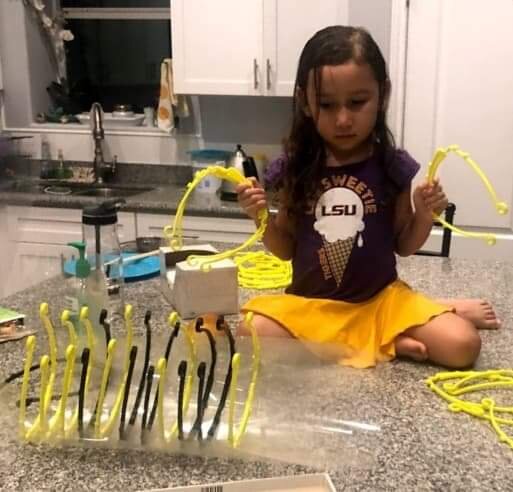
Caro’s daughter Olivia helping with face shield assembly
When Dane Caro heard how dire the PPE situation was he, like so many others in the community, knew that he had to do something. Here’s how homegrown efforts are having a big impact on the local community.
Taking the Initiative to Serve
Caro, a programmer and founder of Anvil 3D, knows his way around 3D printers. He’s prototyped many for his company and enjoyed using them to build items for his four-year-old daughter — until he became aware of a greater need. “My wife, a doctor at Baton Rouge General, told me how bad the PPE situation was there,” Caro says. “I thought this was a good time to use the equipment I have to help out.”
Caro’s first design files were for N95 masks that could be shaped to the wearer’s face using warm water. These were a more comfortable option, but healthcare professionals didn’t always have time to shape them, so Caro pivoted to developing face shields. After experimenting, he settled on a lightweight, low-cost design.
Soon the Louisiana Technology Park got involved by offering their 3D printer, supplying the filaments needed to make the shields, and getting the word out to the larger community. “We knew we wanted to get the community involved,” Caro says. More local organizations with 3D printers offered to help, and Caro and his team of printers began taking requests from local healthcare and frontline organizations.
Integrating and Expanding the Project
A collaboration with Kristen Edson, Deputy Library Director, and Mary Stein, Assistant Library Director, at the EBR parish library has expanded the project. “We had brand new 3D printers still in their boxes at the new River Center branch library,” Stein says. “Our team was impatient to help fill the need for PPEs.”
But although they had 3D printers and a passion for making a difference, the team at the library lacked design files that could be printed quickly, effectively and consistently. And so they joined forces with Caro and the Tech Park. Caro integrated his files and supply chain with the library’s resources, and the collaborators started printing.
With so many people dedicated to the cause, the 3D printing project has been able to expand PPE production to other frontline workers, like the local police department and prison facilities.
Responding with Speed and Agility
Because this is a grassroots effort, Caro and his team have been able to be agile and responsive to the community’s ongoing needs — even to the point of changing the design files. “We’re getting so much feedback from physicians,” Caro says. “I’ve actually remade the file to address break-points and add an ear-saver so that masks can be attached to the shield itself.”
Caro is optimizing the design to turn the operation into a low-touch manufacturing line. This will increase the speed of production and get PPEs where they need to be more quickly. “This whole process has been nimble and responsive,” Stein says. “We’re not waiting on anyone else — we’ve been able to act and react immediately.”
The larger community has been responsive, too. Supplies and resources are being crowdsourced. The St. Mary Parish School Board donated 3900 transparency sheets that they found in storage to keep the project moving. “It’s amazing how the community has come together to support healthcare workers,” Caro says. So far nearly 2000 face shields have been printed and donated to healthcare and frontline workers in Louisiana.
